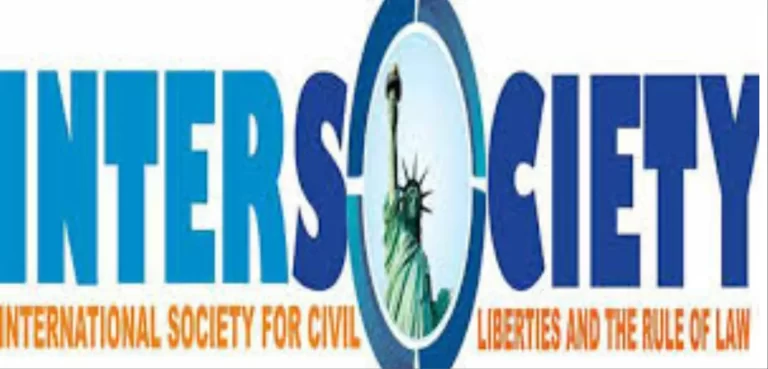As an aftermath of the governorship election held in Imo State in November last year, the International Society For Civil Liberties And Rule Of Law, Intersociety, has called for a total overhaul of the country’s Electoral Act.
It said the expected reform should reflect in the areas of “Side-by-side use of electronic and manual voting; detachment of electoral courts from regular courts, as well as total elimination of ‘judicial Technicalities’”.
The group made the demand at a press briefing in Enugu on Sunday, which was addressed by Emeka Umeagbalasi, Board Chair, Intersociety, Anayo Okoli, Board Member, Chidinma Udegbunam Esquire, Head of Publicity, Prof Jerry Chukwuokolo and Engineer Ikenwoke Nwandu.
Intersociety said its calls for electoral reform was hinged on the outcome of the 2023 general elections, which worsened during the off-circle governorship election in Imo State.
It said to end such “shambolic poll” in the country, there should be a system that allows popular participation, including access to PVCs and secured voting environment and voting materials.
“The above is urgently and popularly needed to be done in Imo State to restore the voting and the general citizens’ confidence in the Judiciary and the country’s Electoral Process and have them back on track,” it stated.
The group alleged that Imo State has since Jan 2021 “become a safe haven for state actor and non-state actor unlawful killings, ritualism, maiming, abductions-for-religious radicalism and abductions-for-ransom; enforced disappearances, custodial and captivity torture and exterminations; gender violence, including rape and forceful conversions on the ground of radical religion; house burnings, political thievery and violence; election rigging, abuse of power and political corruption.”
It added that the state had been exposed to depopulation of male citizens in marital age brackets, displacements, forced migration, political falsehood and propaganda; class criminalization and false labeling; victimless criminalities including drug abuses and addictions; and general under-development, joblessness and mass poverty.
“The state, as a result, has become a gateway of criminalities into Anambra, Abia, Enugu, and Rivers States,” it lamented.
It, therefore, called for “comprehensive reformation of the Nigeria’s electoral court and voting process including: provision for independent candidacy from presidency and governorship to State and Federal legislative seats, side-by-side codified use of Electronic and Manual Voting, detachment of Electoral Courts, their processes and procedures, including rules as well as their handlers from those of Regular Courts.
“The ‘Electoral Court’ processes and procedures and their handlers under demand should be modeled after the “Constitutional Court System” obtained in several developed and developing democratic countries and total elimination of ‘judicial technicalities’ from post-election dispensation of ‘justice’ in Nigeria or any part thereof.
“Judicial Technicalities have been found to be responsible for over 80% of brutal judicial subversion of the sacred electoral wishes of the conscientious Nigerian voting population.
“The standard practices in developed and developing Democratic Countries’ electoral courts are to fundamentally determine the field winners of the valid majority votes cast from among the total lawful cast votes emanating from polling centers or units through their manual or electronic voting systems.
“Time has also come for general and codified use of electronic and manual voting to be used side-by-side. Voting citizens must be allowed their sacred choice of using electronic voting or manual voting in Nigeria or any part thereof,” it advocated.
Intersociety claims facts and findings arising from its several investigations obtained before, during and after the Imo Governorship Poll “have shown how supposedly state actor or Government democratic institutions turned themselves into rigging tools in the election: thereby making the Poll ‘worse of the worst’ in Nigeria’s Electoral Process and recent election history.”
It warned that “Anambra 2025 or Anambra’s off-circle Governorship Election of Nov 2025 is most likely to witness unprecedented political violence, including aimless and targeted shootings and killings, and property destruction and other forms of violence against persons and properties.”
It added that this would be for the “purposes of creating a general atmosphere of insecurity and other unsafe conditions-aimed at scaring away many of the conscientious voting population to give room for ‘guided voting’ or massive result fixing and harvesting arising from ‘dead votes’”.
